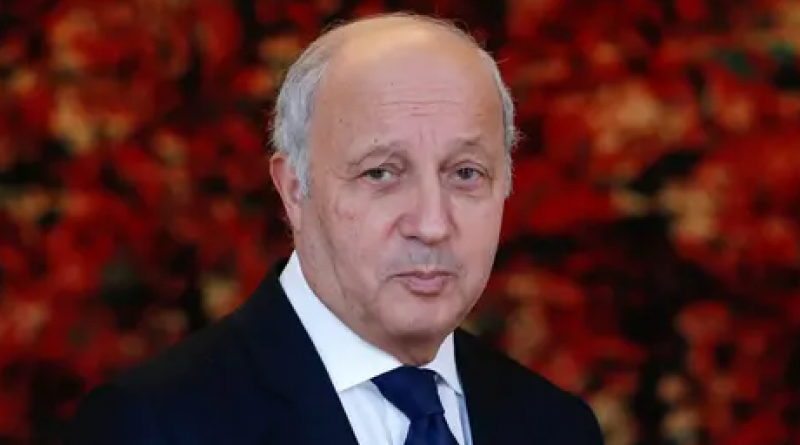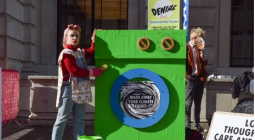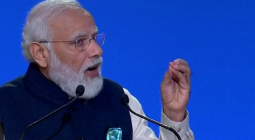Paris Cop president warns projected 1.8C heating limit is only hypothesis

Laurent Fabius says countries must be open and accountable about how they will deliver pledges in full
Prospects of limiting global heating to 1.8C on the basis of commitments made at the Cop26 climate summit are only “a hypothesis”, the godfather of the Paris climate agreement has warned.
Laurent Fabius, the former French prime minister who was president of the 2015 Paris summit, said he was “very impressed” by the commitments made in the first week of the Cop26 conference, including a deal to reduce the potent greenhouse gas methane, a net zero target from India, plans from China to reduce emissions and commitments on coal.
If those plans are fulfilled, according to the International Energy Agency, global temperature increases could be limited to 1.8C, which is below the Paris agreement’s upper goal of limiting rises to 2C but well below its tougher aspiration of capping heating at 1.5C above pre-industrial levels.
But Fabius told the Guardian in an interview: “This is theoretical … It means if all that has been announced is delivered in full, which obviously is a hypothesis.”
He believes countries need to show more rigour in the commitments they are making, by ensuring there are the means in place to scrutinise them properly. Divisions remain over the methods by which countries should report on their emissions and how they should be verified.
These questions were left unresolved at Paris, but must be finalised in order for the agreement to be fully implemented. But these seemingly technical issues were essential to any deal at Cop26, because it was vital for countries to have to show they were meeting their hypothetical commitments, said Fabius.
Fabius said: “There comes a point, which is very important, when you have to check the results. That is about accountability and transparency. It’s one thing to aim and another thing to deliver. Transparency [on how countries are faring on their goals] is critical.”
These technical discussions, known as the Paris rulebook, must be resolved in Glasgow, not left to future meetings, he insisted. “People would be very disappointed if we do not get the rulebook. It was six years ago that Paris was signed.”
Fabius was also cautious on the prospects for Cop26 marking a move by all countries to agree to focus on the 1.5C goal rather than the “well below 2C” goal that was also in the Paris accord. The UK hosts have set as the aim of Cop26 to “keep 1.5C alive”, stressing the importance of new science published since the Paris agreement that shows dire impacts for the planet beyond the 1.5C threshold.
“1.5C is what the science advises,” he said. “But some countries, ones that are not minor, may not accept that we have abandoned 2C and moved to 1.5C.”
Fabius said he was happy at the constructive nature of the talks so far, though he warned there could be unpleasant surprises to come. “There is less pessimism and more optimism than there was even a few weeks ago,” he said. “The actions are more positive. Delegates understand the necessity of delivering.”
5 November 2021
The Guardian





